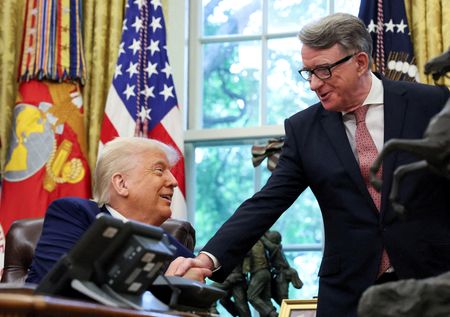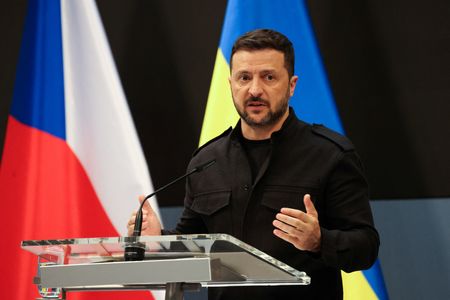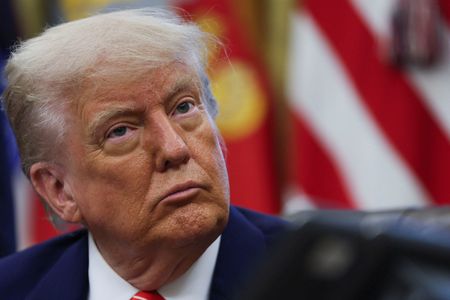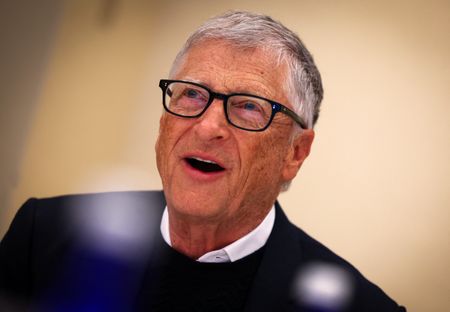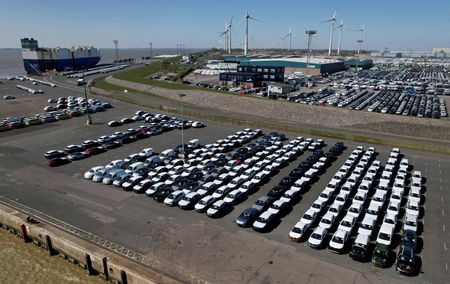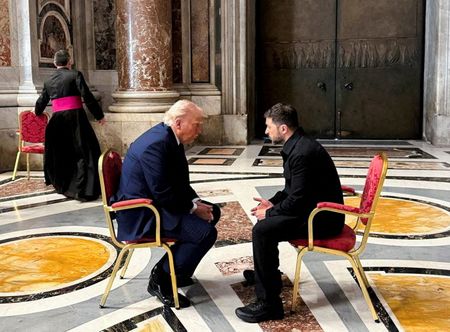By Andrew MacAskill, Alistair Smout
LONDON (Reuters) -British Prime Minister Keir Starmer on Thursday secured a second trade pact in three days through a deal with U.S. President Donald Trump, claiming a much-needed political victory that removes a threat to some of the UK’s must vulnerable industrial sectors.
The U.S. agreed to lower tariffs on British cars and steel in return for Britain lowering tariffs on American beef and ethanol.
Starmer said the deal was worth doing so that companies in the impacted sectors could make plans without worrying about tariffs of 25% or more, even though a broader deal to cut 10% baseline tariffs remain under discussion.
“We would like to go further in relation to tariffs, but I think it’s really important that we’ve been able to get this deal over the line now, because in that way, we’ve been able to protect and save and enhance jobs right here, right now,” Starmer told reporters in London.
The deal, which follows a landmark free trade agreement with India on Tuesday, was criticised by British opposition Conservative leader Kemi Badenoch but initially welcomed by Nigel Farage, the leader of the anti-immigration Reform Party who is close to Trump.
“We have an American president who’s pro-Britain and we can take this much further,” said Farage, the pro-Brexit campaigner.
“It’s a Brexit benefit that we’re able to do this … this is a big step in the right direction.”
It was also largely welcomed by British businesses and industries such as auto manufacturing and steel production. They said it would provide some relief to companies impacted by the tariffs without giving too much away in return.
The future of steel in Britain has been in doubt, with the government stepping in to keep blast furnaces running, while car manufacturers have also spoken up about the threats of tariffs to their business plans.
The Society of Motor Manufacturers and Traders said the deal was “great news for industry” and would provide “much needed relief”.
The National Farmers Union largely welcomed it, thanking Starmer’s government for not lowering agricultural standards in a deal that provides reciprocal market access for beef.
Britain also said the U.S. would give it preferential treatment in considering other sectors it is exploring further tariffs on, such as pharmaceutical sectors – a key issue for AstraZeneca and GSK.
Trump has also floated taxing the film sector to ensure more movies are made in Hollywood, but as there is no formal review as to whether tariffs will be imposed, the sector was not covered in Thursday’s deal, officials said.
Starmer has pinned his entire political strategy on economic growth. But with the British economy struggling to grow, the U.S tariffs had added to the pressure on his government.
Last week, he suffered a bruising set of local election results, which were blamed on his government’s unpopular decision to cut winter fuel or welfare payments.
(Reporting by Andrew MacAskill and Alistair Smout; Editing by Paul Simao)

